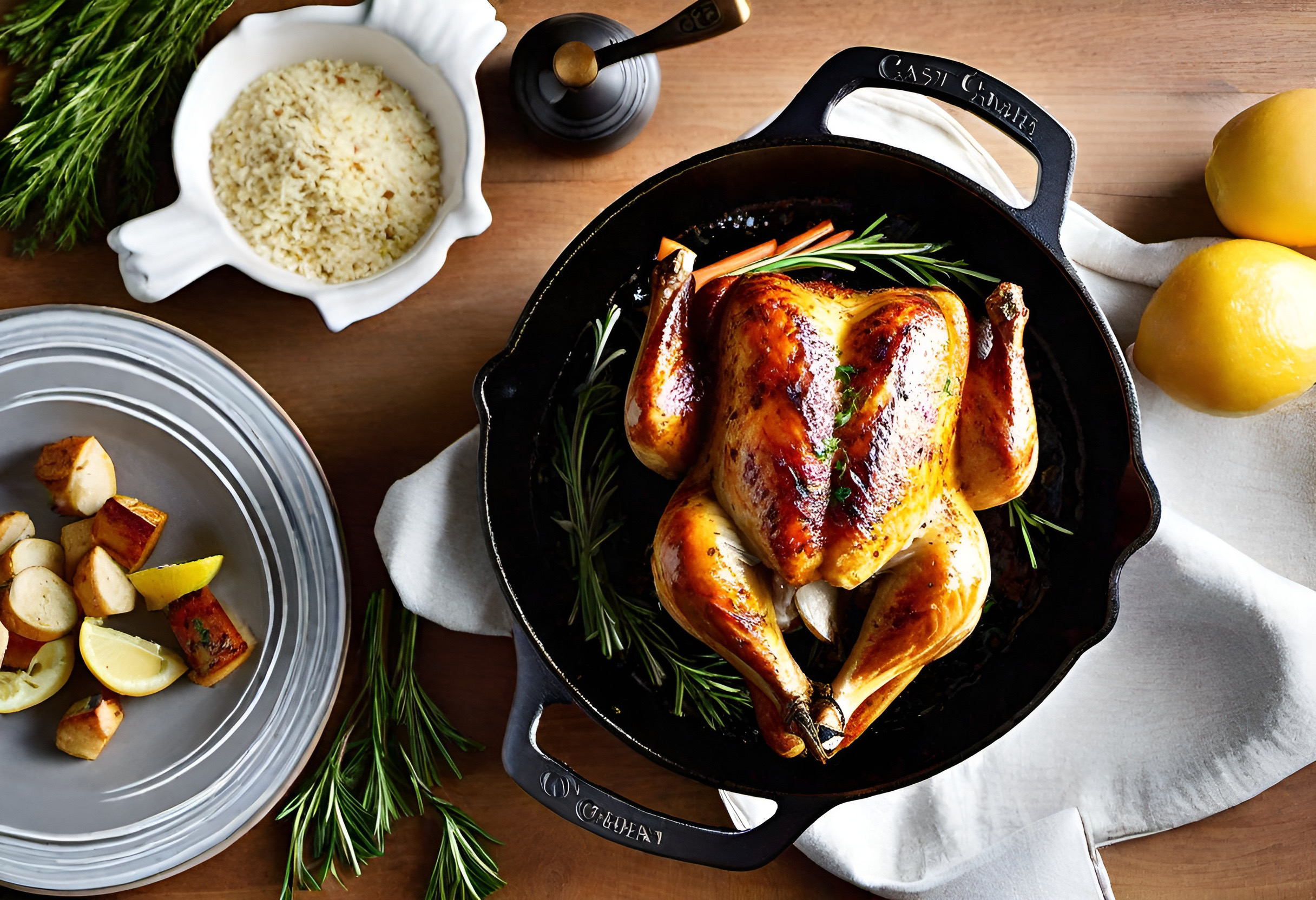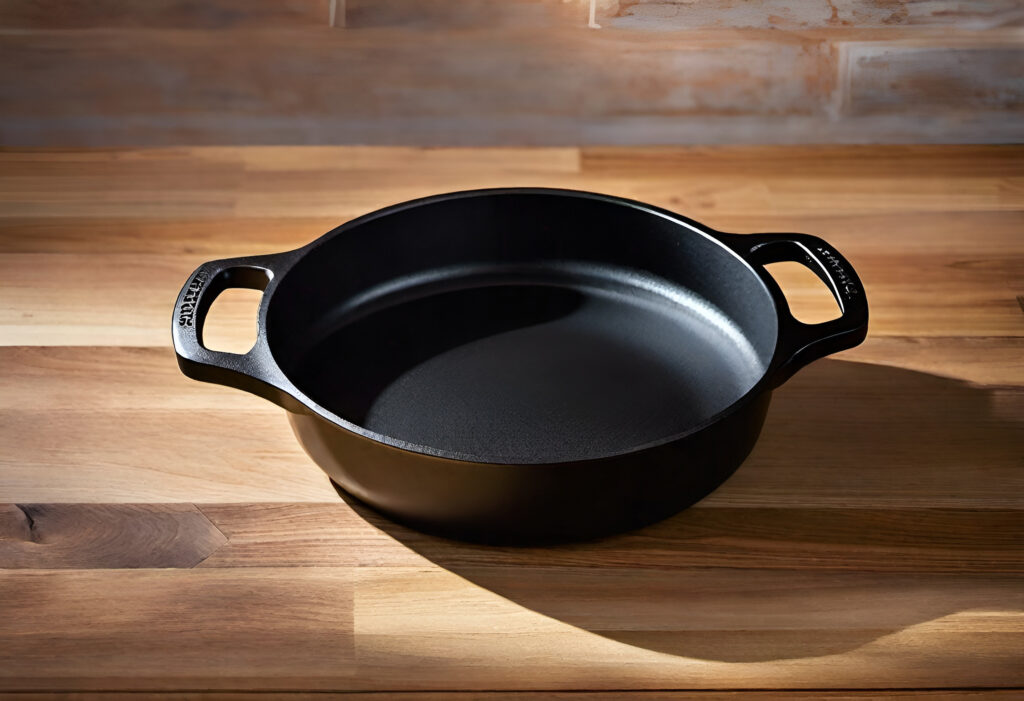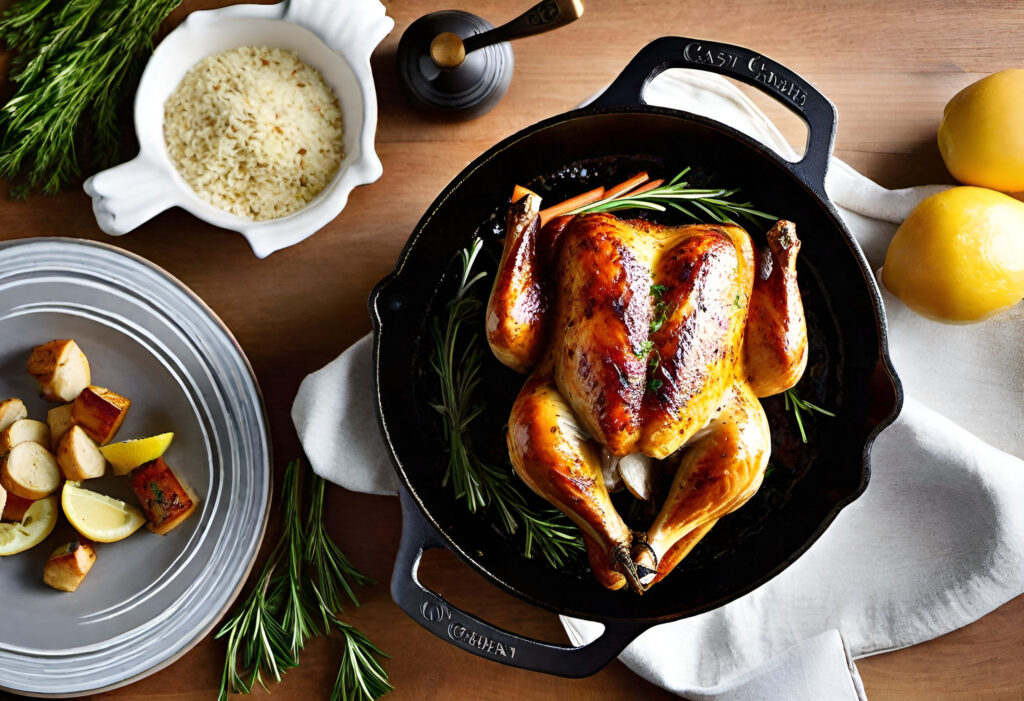So you finally have your shiny new Lodge cast iron pan! Yay!! But now the question is, how do you season it? Seasoning is a crucial step in the care and maintenance of your cast iron pan, as it creates a slick, non-stick surface that will only get better with time and use.
In this article, we will explore the ins and outs of seasoning a Lodge cast iron pan, including tips and tricks, step-by-step instructions, and troubleshooting advice. Whether you’re a seasoned cast iron aficionado or a newbie in the kitchen, you’ll find everything you need to know right here.
Let’s dive in and discover how to season your Lodge cast iron pan to perfection!
Cooking with Cast Iron
Cooking with cast iron is a timeless tradition that has been passed down through generations. Not only does it add a unique flavor to your dishes, but it also offers a variety of benefits that make it a must-have in any kitchen.
Whether you’re a beginner cook or a seasoned chef, using a Lodge cast iron pan can elevate your cooking game to new heights.
Benefits of Cooking with Cast Iron
- Even Heat Distribution: One of the biggest advantages of cooking with cast iron is its ability to distribute heat evenly. This means that your food will cook more uniformly, reducing the risk of unevenly cooked or burnt spots.
- Excellent Heat Retention: Cast iron pans excel in retaining heat, which makes them perfect for searing, braising, and frying. This feature allows you to achieve a beautiful, golden crust on your steaks or evenly cook a delicious stir-fry.
- Versatility: Cast iron pans are incredibly versatile and can be used for a wide range of cooking methods, including stovetop, oven, and even outdoor cooking. From searing, roasting, and baking, to cooking a hearty one-pot meal, a Lodge cast iron pan can handle it all.
- Durability: Cast iron pans are built to last a lifetime and can withstand high temperatures and heavy use. With proper care and maintenance, your cast iron pan can be passed down to future generations as a cherished family heirloom.

Common Mistakes to Avoid
While cooking with cast iron is relatively straightforward, there are some common mistakes that you should avoid to ensure the longevity and performance of your Lodge cast iron pan:
- Using Metal Utensils: Avoid using metal utensils with your cast iron pan to prevent scratching and damaging the seasoned surface. Opt for wooden, silicone, or heat-resistant nylon utensils instead.
- Using Excessive Heat: While cast iron is known for its heat retention, using excessive heat can lead to uneven heating and even warping of the pan. Stick to medium or medium-high heat for most cooking tasks.
- Skipping the Seasoning Step: Seasoning is essential for maintaining the non-stick properties of your cast iron pan. Make sure to season your pan regularly to build up a protective layer that prevents food from sticking.
- Soaking or Dishwashing with Soap: Avoid soaking your cast iron pan for an extended period or washing it with soap, as this can remove the seasoning and promote rusting. Instead, use hot water, a brush, and mild scrubbing to clean your pan.
Tips for Cooking with Cast Iron
Here are some helpful tips to enhance your cooking experience with a Lodge cast iron pan:
- Preheat Properly: Preheating your cast iron pan is crucial for achieving the desired cooking result. Allow the pan to heat gradually over medium heat to ensure even heating throughout.
- Use Oil or Fat: To prevent food from sticking to the pan, it’s essential to use oil or fat. Opt for high smoke-point oils such as vegetable oil, canola oil, or flaxseed oil. Apply a thin layer and distribute it evenly across the cooking surface.
- Avoid Acidic Foods: Acidic foods like tomatoes or citrus can react with the seasoning of your cast iron pan and affect the flavor of your dish. It’s best to avoid cooking highly acidic foods in your cast iron.
- Monitor Temperature: Cast iron pans can retain heat for a long time, so be mindful of the cooking temperature. Adjust the heat if necessary to prevent overcooking or scorching your food.
Recipes to Try with Your Lodge Cast Iron Pan
Now that you know the benefits, common mistakes to avoid, and some useful tips for cooking with cast iron, it’s time to try out some delicious recipes. Here are a few ideas to get you started:
- Cast Iron Skillet Pizza: Impress your family and friends with a homemade pizza cooked to perfection in your Lodge cast iron pan. The crispy crust and melty cheese will have everyone coming back for seconds.
- Pan-Seared Steak: Achieve restaurant-quality seared steaks in your own kitchen by using your cast iron pan. The caramelized crust and juicy interior will make this a favorite dish for meat lovers.
- One-Pot Jambalaya: Embrace the versatility of your cast iron pan by cooking up a flavorful jambalaya with a variety of meats, vegetables, and spices. The cast iron pan’s even heat distribution will ensure all the flavors meld together beautifully.
- Crusty Cornbread: Whip up a batch of traditional Southern cornbread using your trusted cast iron pan. The crispy edges and soft, buttery interior will be a hit at any gathering.
Remember, cooking with a Lodge cast iron pan is all about experimentation and having fun in the kitchen. Don’t be afraid to try new recipes and techniques to fully unleash the potential of your cast iron cookware.
Happy Cooking!




